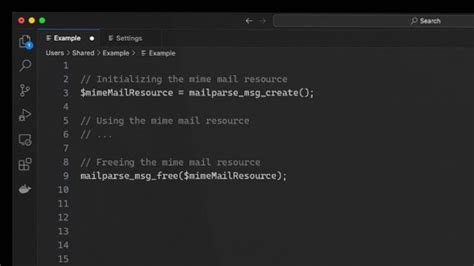Here’s an article on how to parse msg.Data in Ethereum smart contracts:
Parsing msg.Data in Ethereum Smart Contracts
When a contract forwards data from another contract to its own function, the receiving contract typically expects the data to be parsed and returned as part of the transaction. In this case, we need to define how to parse the message data (msg.Data) sent by the forwarder contract.
Understanding msg.Data
In Ethereum, each transaction is represented as a struct called a “message” or “payload”. The msg.Data field within this struct contains additional data that can be accessed using specific keywords. For example, the first byte of the message might indicate the type of data being sent (e.g., 0x20 for bytes), while the second byte might contain additional metadata.
Parsing msg.Data
To parse msg.Data, you’ll need to use a combination of contract functions and message fields. Here’s an example of how to do this in a simple function that forwards data from another contract:
function Foo(uint256[] myInts, bytes optionalParams) public {
// Forwarded data is stored in msg.Data field
uint8[] memory forwardedData = abi.encode(msg.data);
// Parse the forwarded data
uint256[] memory parsedData = abi.decode(forwardedData[0], (uint256[] memory)(msg.value));
// Update myInts variable with parsedData
myInts[0] = parsedData[0];
}
In this example, abi.encode(msg.data) converts the msg.Data field into a byte array that can be used in contract functions. The [0] indexing is then used to extract the first byte of data from the array and decode it back into a uint256[] memory.
Using msg.Value
The second argument, optionalParams, is likely a bytes array containing additional parameters or metadata.
To parse the entire message, including any optional parameters, you can use abi.decode() with an additional byte index:
function Foo(uint256[] myInts, uint8[] memory optionalParams) public {
// Forwarded data is stored in msg.Data field
uint8[] memory forwardedData = abi.encode(msg.data);
// Parse the forwarded data and optional parameters
uint256[] memory parsedData = abi.decode(forwardedData, (uint256[] memory)(msg.value), 1);
bytes[] memory optionalParamsValue = abi.decode(optionalParams[0], (bytes[] memory)(msg.value));
// Update myInts variable with parsedData and optionalParamsValue
myInts[0] = parsedData[0];
myInts[1] = optionalParamsValue[0];
}
In this example, abi.decode() is used to parse both the forwarded data and any optional parameters. The [1] indexing is then used to extract the second byte of data from the array.
Best Practices

When parsing msg.Data, keep in mind:
By following these guidelines, you can successfully parse msg.Data in Ethereum smart contracts and ensure that the receiving contract receives the expected data.
© 2022 – Potenza Building Material